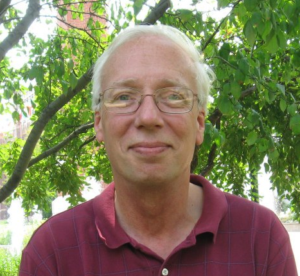Can a church do without deacons?

During the first session of the Synod on Synodality, I happened to be the only Roman Catholic permanent deacon. I was told several times by some of the bishops present: “We do not need deacons, because we still have enough priestly vocations”. A recognizable reaction perhaps, but at the same time too short-sighted. It makes us wonder whether we can form a church without deacons. But can we, actually?
Potentially strong ministry
The episcopal comment above made clear that not everyone understands what exactly a deacon does or is, so I felt obliged to briefly explain to the synod what the permanent diaconate means to me. As a permanent deacon, I am neither a priest nor a priest-to-be. My vocation as a deacon is rooted in Christ, in my marriage, and in our family of three children. Although liturgy is important, a deacon’s primary vocation is not ceremonial or liturgical. The vocation of the deacon is to bring the diaconia into the catechesis and into the liturgy. Some way or another, it also belongs to the deacon’s vocation to bring the catechesis and the liturgy into the diaconia. It makes the diaconate a potentially strong ministry, especially in a suffering world like ours.
Building bridges
The sacramental presence in the world of Christ – through the ordination of the permanent deacon – is so important. As a matter of fact, many deacons have a (so-called) secular job. And that is fine. All they need to do is make sure that Christ and the Gospel is made present in their working environment. They don’t have to make that explicit through the words they speak or the clothes they wear. They can make it explicit by the way they behave, by the way they treat others, by the way they speak up, especially for those who are not given a voice in their working environment. The social teachings of the Church – often referred to as a source of Christian life – can assist the permanent deacon in his mission to build bridges between Church and broader society, especially in a secular world such as that of the West. Being a permanent deacon is about reaching out and listening to people in the periphery. A deacon brings Christ to the periphery, and the periphery into the heart of the church.
Vocation of its own right
Inevitably, a deeper reflection on the diaconate raises the question of women’s inclusion in the diaconate. The Instrumentum Laboris for the synod asks a very simple question about this. “Is it possible to envisage this?” For me, there is a simple answer to that simple question: “Yes, it is”. If, however, at some point it is decided to ordain women as deacons, we must ensure that they are not clericalized and that they are not considered as a solution to the lack of priests. A deeper understanding will show that it only works if you think of the diaconate as a vocation of its own right. So, once more: Can a church do without deacons? The answer can only be: no, she cannot. A healthy church needs deacons.

Deacon Geert de Cubber
Geert De Cubber (1974) was ordained a permanent deacon in Gent (Belgium) in 2013. He is a non-bishop Member of the XVIth Assembly of the Synod of Bishops on Synodality.


